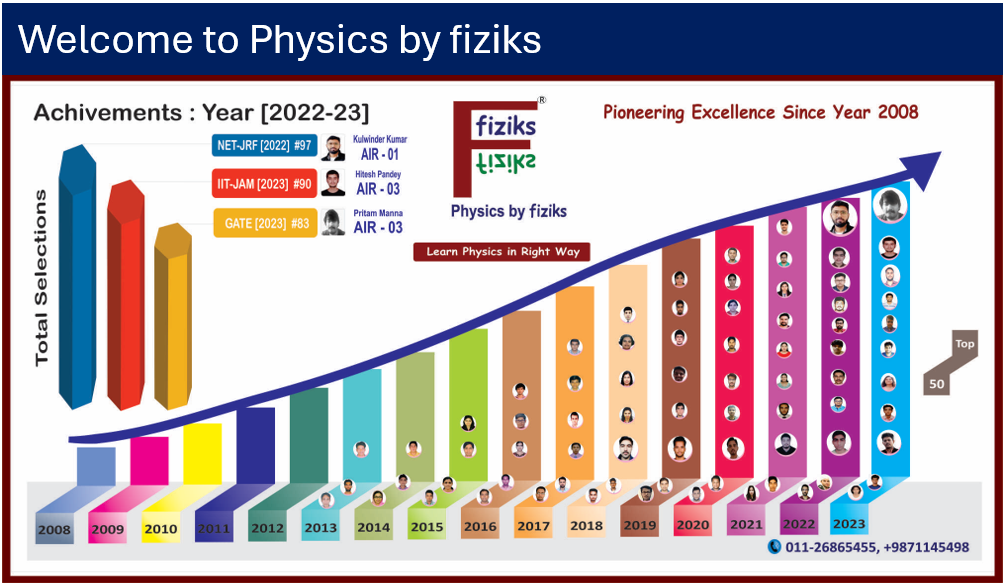Joint Entrance Screening Test (JEST)
EXAM PATTERN
- The exam is conducted through offline mode in OMR answer sheet.
- There is a total of 50 objective questions of 100 marks. The exam duration is 3 hours.
- The exam will consist of 3 Parts: Part A, Part B and Part C.
Part A consists of 15 questions which will carry 3 marks each.
Part B consists of 10 questions which will carry 3 marks each.
Part C consists of 25 questions which will carry 1 mark each.
For Part A: 3 marks will be rewarded for every correct answer and 1 mark will be deducted for every wrong answer.
For Part B: 3 marks will be awarded for every correct answer. There is no negative marking in this Part.
For Part C: 1 mark will be awarded for every correct answer and 1/3 mark will be deducted for every wrong answer.
SYLLABUS
Mathematical Methods
Vector algebra and vector calculus, tensors, curvilinear coordinate systems, linear algebra; Linear differential equations, elements of Sturm–Liouville theory; Special functions; Complex analysis; Fourier series and Fourier transforms, Laplace transforms; Elementary properties of discrete groups; Elements of probability theory, error analysis.
Classical Mechanics
Newton’s laws, conservation of energy and momentum, collisions; generalized coordinates, principle of least action, Lagrangian and Hamiltonian formulations of mechanics; Symmetry and conservation laws; central force problem, Kepler problem; Small oscillations and normal modes; special relativity in classical mechanics.
Electromagnetism & Optics
Electrostatics and magnetostatics, boundary value problems, multipole expansion; Fields in conducting, dielectric, diamagnetic and paramagnetic media; Faraday’s law and time varying fields; displacement current; Maxwell’s equations; energy and momentum of electromagnetic fields; Propagation of plane electromagnetic waves, reflection, refraction; Electromagnetic waves in dispersive and conducting media; diffraction, interference, polarization.
Quantum Mechanics
Uncertainty principle; Schrodinger equation; central potentials, hydrogen atom; Orbital and spin angular momenta, addition of angular momenta; Matrix formulation of quantum theory, unitary transformations, Hermitian operators; Variational principle, time independent perturbation theory, time dependent perturbation theory.
Thermodynamics & Statistical Physics
Laws of thermodynamics, work and heat, thermodynamic potentials; Elements of kinetic theory; Maxwell’s relations; Statistical ensembles; partition function; classical ideal gas, harmonic oscillators; Classical and quantum statistics; Fermi and Bose gases; black body radiation; statistics of paramagnetism
Electronics
Basics of semiconductor; p-n junctions, diodes, transistors; LCR circuits, rectifiers, amplifiers, active filters and oscillators; basics of OPAMPs and their applications; basics of digital electronics.



